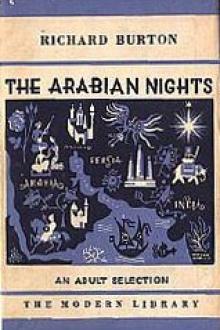The Book Of The Bush - George Dunderdale (tharntype novel english .txt) 📗

- Author: George Dunderdale
Book online «The Book Of The Bush - George Dunderdale (tharntype novel english .txt) 📗». Author George Dunderdale
Freedom, And Preferred Maori Customs, And The Risk Of Being Eaten, To
Story 1 (Purging Out The Old Leaven.) Pg 5The Odious Supervision Of The English Government. The Individual
White Man In Those Days Was Always Welcome, Especially If He Brought
With Him Guns, Ammunition, Tomahawks, And Hoes. It Was By These
Articles That He First Won The Respect And Admiration Of The Native.
If The Visitor Was A "Pakeha Tutua," A Poor European, He Might
Receive Hospitality For A Time, In The Hope That Some Profit Might Be
Made Out Of Him. But The Maori Was A Poor Man Also, With A Great
Appetite, And When It Became Evident That The Guest Was No Better
Than A Pauper, And Could Not Otherwise Pay For His Board, The Maori
Sat On The Ground, Meditating And Watching, Until His Teeth Watered,
And At Last He Attached The Body And Baked It.
In 1814 The Church Missionary Society Sent Labourers To The Distant
Vineyard To Introduce Christianity, And To Instruct The Natives In
The Rights Of Property. The First Native Protector Of Christianity
And Letters Was Hongi Hika, A Great Warrior Of The Ngapuhi Nation, In
The North Island. He Was Born In 1777, And Voyaging To Sydney In
1814, He Became The Guest Of The Rev. Mr. Marsden. In 1819 The Rev.
Gentleman Bought His Settlement At Kerikeri From Hongi Hika, The
Price Being Forty-Eight Axes. The Area Of The Settlement Was
Thirteen Thousand Acres. The Land Was Excellent, Well Watered, In a
Fine Situation, And Near A Good Harbour. Hongi Next Went To England
With The Rev. Mr. Kendall To See King George, Who Was At That Time In
Matrimonial Trouble. Hongi Was Surprised To Hear That The King Had
To Ask Permission Of Anyone To Dispose Of His Wife Caroline. He Said
He Had Five Wives At Home, And He Could Clear Off The Whole Of Them
If He Liked Without Troubling Anybody. He Received Valuable Presents
In London, Which He Brought Back To Sydney, And Sold For Three
Hundred Muskets And Ammunition. The Year 1822 Was The Most Glorious
Time Of His Life. He Raised An Army Of One Thousand Men, Three
Hundred Of Whom Had Been Taught The Use Of His Muskets. The
Neighbouring Tribes Had No Guns. He Went Up The Tamar, And At Totara
Slew Five Hundred Men, And Baked And Ate Three Hundred Of Them. On
The Waipa He Killed Fourteen Hundred Warriors Out Of A Garrison Of
Four Thousand, And Then Returned Home With Crowds Of Slaves. The
Other Tribes Began To Buy Guns From The Traders As Fast As They Were
Able To Pay For Them With Flax; And In 1827, At Wangaroa, A Bullet
Went Through Hongi'S Lungs, Leaving A Hole In His Back Through Which
He Used To Whistle To Entertain His Friends; But He Died Of The Wound
Fifteen Months Afterwards.
Other Men, Both Clerical And Lay, Followed The Lead Of The Rev. Mr.
Marsden. In 1821 Mr. Fairbairn Bought Four Hundred Acres For Ten
Pounds Worth Of Trade. Baron De Thierry Bought Forty Thousand Acres
On The Hokianga River For Thirty-Six Axes. From 1825 To 1829 One
Million Acres Were Bought By Settlers And Merchants. Twenty-Five
Thousand Acres Were Bought At The Bay Of Islands And Hokianga In Five
Years, Seventeen Thousand Of Which Belonged To The Missionaries. In
1835 The Rev. Henry Williams Made A Bold Offer For The Unsold
Country. He Forwarded A Deed Of Trust To The Governor Of New South
Wales, Requesting That The Missionaries Should Be Appointed Trustees
For Thecription Of Any Particular One. But I Doubt
Story 1 (Purging Out The Old Leaven.) Pg 6Not That They Were Very Magnificent; And Slaves In Gorgeous Liveries
Waited On The Guests, And Offered Them Wine In Goblets Of Massive Silver."
"Were There Slaves In Those Days?" Exclaimed Clara.
"Yes; Black Slaves And White," Replied Grandfather. "Our Ancestors Not
Only Bought Negroes From Africa, But Indians From South America, And White
People From Ireland. These Last Were Sold, Not For Life, But For A Certain
Number Of Years, In Order To Pay The Expenses Of Their Voyage Across The
Atlantic. Nothing Was More Common Than To See A Lot Of Likely Irish Girls,
Advertised For Sale In The Newspapers. As For The Little Negro Babies,
They Were Offered To Be Given Away, Like Young Kittens."
"Perhaps Alice Would Have Liked One To Play With, Instead Of Her Doll,"
Said Charley, Laughing.
But Little Alice Clasped The Waxen Doll Closer To Her Bosom.
"Now, As For This Pretty Doll, My Little Alice," Said Grandfather, "I Wish
You Could Have Seen What Splendid Dresses The Ladies Wore In Those Times.
They Had Silks, And Satins, And Damasks, And Brocades, And High
Head-Dresses, And All Sorts Of Fine Things. And They Used To Wear
Hooped-Petticoats, Of Such Enormous Size That It Was Quite A Journey To
Walk Round Them."
"And How Did The Gentlemen Dress?" Asked Charley.
Story 1 (Purging Out The Old Leaven.) Pg 7
"With Full As Much Magnificence As The Ladies," Answered Grandfather. "For
Their Holiday Suits, They Had Coats Of Figured Velvet, Crimson, Green,
Blue, And All Other Gay Colors, Embroidered With Gold Or Silver Lace.
Their Waistcoats, Which Were Five Times As Large As Modern Ones, Were Very
Splendid. Sometimes, The Whole Waistcoat, Which Came Down Almost To The
Knees, Was Made Of Gold Brocade."
"Why, The Wearer Must Have Shone Like A Golden Image!" Said Clara.
"And, Then," Continued Grandfather, "They Wore Various Sorts Of Periwigs,
Such As The Tie, The Spencer, The Brigadier, The Major, The Albemarle, The
Ramilies, The Feather-Top, And The Full-Bottom! Their Three-Cornered Hats
Were nce With His Tribe, Which Was Numerous And Warlike.
He Was Admired By The Natives For His Strength And Courage. He Was
Six Feet Three Inches In Height, As Nimble And Spry As A Cat, And As
Long-Winded As A Coyote. His Father-In-Law Was A Famous Warrior
Named Lizard Skin. His Religion Was That Of The Church Of England,
And He Persuaded His Tribe To Profess It. He Told Them That The
Protestant God Was Stronger Than The Catholic God Worshipped By His
Fellow Countryman, Poynton. In after Years, When His Converts Made
Cartridges Of Their Bibles And Rejected Christianity, He Was Forced
To Confess That Their Religion Was Of This World Only. They Prayed
That They Might Be Brave In battle, And That Their Enemies Might Be
Filled With Fear.
Laming'S Christian Zeal Did Not Induce Him To Forget The Duties Of
Hospitality. He Received The Bishop As A Friend, And The Europeans
Round Tatura And Other Places Came Regularly To Mass. During The
First Six Years Of The Mission, Twenty Thousand Maoris Either Had
Been Baptised Or Were Being Prepared For Baptism.
Previous To The Year 1828 Some Flax Had Been Brought To Sydney From
New Zealand, And Manufactured Into Every Species Of Cordage Except
Cables, And It Was Found To Be Stronger Than Baltic Hemp. On Account
Of The Ferocious Character Of The Maoris, The Sydney Government Sent
Several Vessels To Open Communication With The Tribes Before
Permitting Private Individuals To Embark In The Trade. The Ferocity
Attributed To The Natives Was Not So Much A Part Of Their Personal
Story 1 (Purging Out The Old Leaven.) Pg 8Character As The Result Of Their Habits And Beliefs. They Were
Remarkable For Great Energy Of Mind And Body, Foresight, And
Self-Denial. Their Average Height Was About Five Feet Six Inches,
But Men From Six Feet To Six Feet Six Inches Were Not Uncommon.
Their Point Of Honour Was Revenge, And A Man Who Remained Quiet While
The Manes Of His Friend Or Relation Were Unappeased By The Blood Of
The Enemy, Would Be Dishonoured Among His Tribe.
The Maoris Were In Reality Loath To Fight, And War Was Never Begun
Until After Long Talk. Their Object Was To Exterminate Or Enslave
Their Enemies, And They Ate The Slain.
Before Commencing Hostilities, The Warriors Endeavoured To Put Fear
Into The Hearts Of Their Opponents By Enumerating The Names Of The
Fathers, Uncles, Or Brothers Of Those In The Hostile Tribe Whom They
Had Slain And Eaten In Former Battles. When A Fight Was Progressing
The Women Looked On From The Rear. They Were Naked To The Waist, And
Wore Skirts Of Matting Made From Flax. As Soon As A Head Was Cut Off
They Ran Forward, And Brought It Away, Leaving The Body On The
Ground. If Many Were Slain It Was Sometimes Difficult To Discover To
What Body Each Head Had Belonged, Whether It Was That Of A Friend Or
A Foe, And It Was Lawful To Bake The Bodies Of Enemies Only.
Notwithstanding Their Peculiar Customs, One Who Knew The Maoris Well
Described Them As The Most Patient, Equable, Forgiving People In The
World, But Full Of Superstitious Ideas, Which Foreigners Could Not
Understand.
They Believed That Everything Found On Their Coast Was Sent To Them
By The Sea God, Taniwa, And They Therefore Endeavoured To Take
Possession Of The Blessings Conferred On Them By Seizing The First
Ships That Anchored In Their Rivers And Harbours. This Led To
Misunderstandings And Fights With Their Officers And Crews, Who Had
No Knowledge Of The Sea God, Taniwa. It Was Found Necessary To Put
Netting All Round The Vessels As High As The Tops To Prevent
Surprise, And When Trade Began It Was The Rule To Admit No More Than
Five Maoris On Board At Once.
The Flax Was Found Growing Spontaneously In Fields Of Inexhaustible
Extent Along The More Southerly Shores Of The Islands. The Fibre Was
Separated By The Females, Who Held The Top Of The Leaf Between Their
Toes, And Drew A Shell Through The Whole Length Of The Leaf. It Took
A Good Cleaner To Scrape Fifteen





Comments (0)